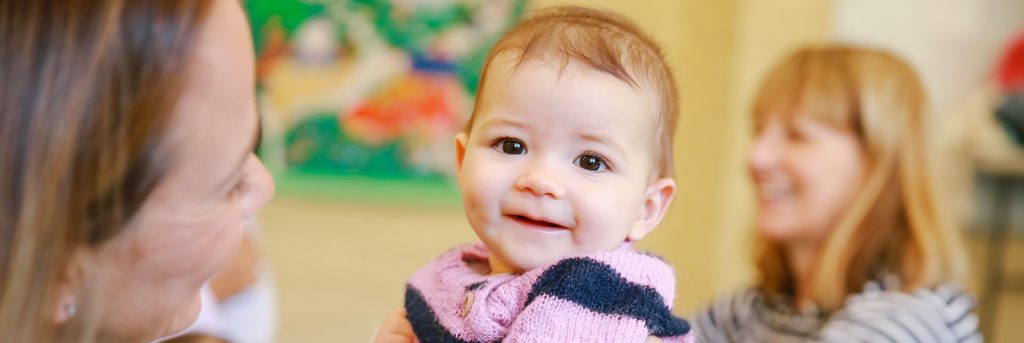
what to expect
Whatever age and stage your child is at, our music classes are a joyful, lively and sometimes noisy time where your child will get to use real instruments, play individually and with friends, sing, dance and be active as they learn about music, rhythm and harmony.
We cannot thank you enough for all you do for children, music and the community. Julie Logan Music is an integral part of our lives!
Catherine Whittaker
tips
- When you participate in class activities, your little ones learn better.
- Attend regularly so your child becomes comfortable with the routine.
- Learn the songs and rhymes so you can use them at home, in the car, at the shops.
- Sometimes children are quiet in class but participate more freely at home between classes. This is totally normal.
- Under 2’s may roam during class, as long as they don’t interfere with the safety and attention of others.
- Focus on your child and try not to talk to other adults during the class.
- Don’t compare one child’s accomplishments to another’s. Children develop at different rates.
- Encourage your child to teach you songs, games and musical terms at home.
- Sing together in the car.
- Dig out your old instrument and start practising again.
- Keep your teacher posted if you have any questions or concerns.
- Be a respectful audience at Open Days and concerts. Children learn these behaviours by watching adults.
Check out our FAQs
Got questions? Get some answers
My toddler can't sit still. Is that okay?
We understand! Movement is part of learning about music and we move a LOT in our classes. We balance lively dancing and play activities with learning to focus and listen. Even older children need lots of moving and grooving to explore new concepts. Check us out on YouTube to see how little any of us sit still in class!
Why is my child sitting and watching?
It’s normal for children to just observe some or all of the lesson for a few weeks. Little ones love routine and will settle into the sessions over a number of weeks of attendance. It’s important for your child’s sense of security to be exposed to a consistent learning environment including the group of peers and parents, which is why we enrol children by the term.
What can young children learn about music?
Research show 0-2 years is a critical period for brain, speech and music development. In fact, the music part of the brain is ESSENTIAL for babies learning to speak. Apart from that, it’s a beautiful way to bond and spend special time together. Children also gain an understanding of rhythm, pitch and beat which will be skills they can tap into later in life if they decide to pursue music.
Why is some repetition necessary?
Repetition is a key element for early development and learning for all babies and children. It helps them to feel safe and secure and builds their confidence. The key is for us to cleverly include something old and something new in each lesson, to keep things fresh and fun. By changing the way favourite songs are used, our expert teachers increase the coordination and musical challenges and will show you how to do the same, making life easier at home, in the car and at the supermarket!
Are all lessons the same?
Julie Logan Music is not a one-size-fits-all program. Our teachers follow a research-based developmental curriculum but each teacher draws on their expert musical knowledge to customise lessons which will captivate each different group of children. All our university trained teachers have an extensive depth of knowledge, lots of teaching experience and have completed a three year post-graduate course in the Kodaly approach, as well as the Orff and Dalcrose approaches. We are specialists in Early Childhood Music Development, so much so that we also provide Professional Development for staff in childcare and schools.
When should my child start learning an instrument?
Learning an instrument can be quite intense. It requires continuous practice and if started too early, this can put a child off music for life! Ideally, your child will get the head-start on learning music in our Baby or Toddler morning classes. Either way, it’s never too late to start and all our classes offer a holistic approach to learning all aspects of music. We use different instruments throughout our whole program, so from approximately eight years of age, your child can easily take off on any instrument they are passionate about.
We love our current teacher. What if we have to change?
Your child will be in excellent hands no matter which teacher they have. All our group teachers are parents themselves, they hold the highest level of Kodaly qualifications and bring 125 years of combined teaching experience to focus entirely on bringing out the best in your child.
What happens if we miss a class?
We understand how tricky changing sleep times, dealing with illness or getting a specialist’s appointment can be. Once you’ve enrolled and paid, you’re entitled to FREE and FLEXIBLE make-ups at any time, in any week that suits you during the term.
Call us today on 0414 848 741.
We’re highly qualified, passionate experts who have years of musical experience in teaching little ones! You’ll love the way we nurture a passion for music in babies and kids, connecting your whole family in a way that’s fun, enjoyable and active.
Stay up to date with our latest news and special offers.
Error: No feed found.
Please go to the Instagram Feed settings page to create a feed.
